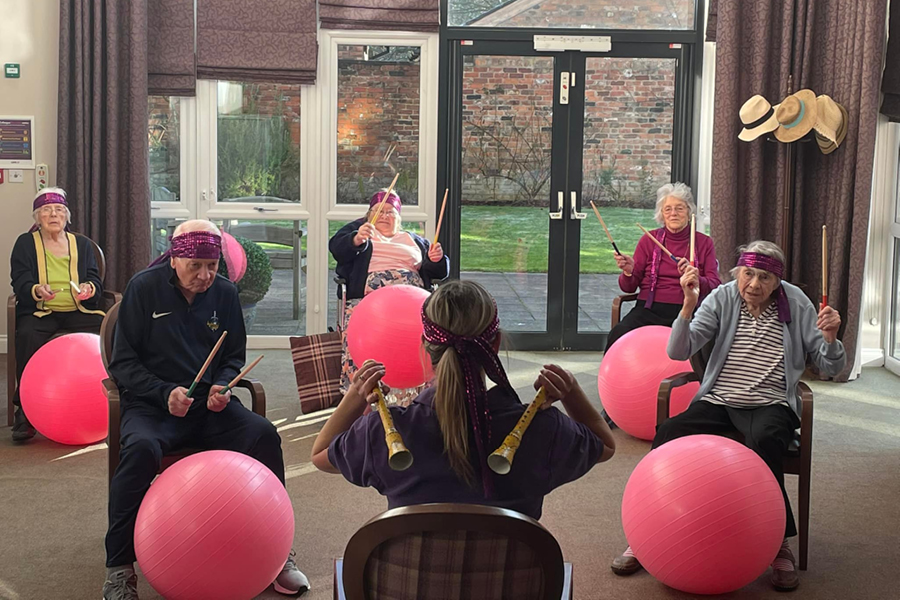Care UK shares the secrets to keeping well in later life
Boosting your activity levels and ensuring you’re getting a balanced diet is all-important in later life.
Top tips on eating well

Maintaining a healthy, balanced diet is important as we get older. As well as boosting our energy levels, getting enough of the right food and staying hydrated will keep bones and muscles strong and minds active.
Our appetite and sense of taste and smell change as we get older which explains why older people often lose their interest in food.
The chefs at Care UK, the award-winning national provider of care for older people, share their tips on eating well and staying hydrated.
- Adapt recipes to add sweeter or stronger flavours. Ginger, garlic, chilli, herbs and fresh lemon or lime add flavour without loading up on salt or sugar.
- Smaller, more frequent meals can stimulate the appetite, such as cheese and crackers or a fruit salad. And if you fancy rice pudding for breakfast, go with it. What’s important is that you’re getting the nutrition you need.
- Snacks help to plug the gap if your appetite gets out of sync with mealtimes.
- Don’t feel tied to producing plated meals. Fruit smoothies, milkshakes and finger foods such as chicken goujons are great alternatives. Add banana and full fat yoghurt to smoothies/milkshakes to boost the calorie count.
- Cook favourite meals in bulk and freeze them to save yourself time and effort.
- People often eat more if they’re doing something else at the same time, such as watching TV. Playing soft background music may also help them to eat more
For more top tips about healthy eating in older age, download Care UK’s Eating as we age, a free guide on how to eat well and stay hydrated in older age
Getting active
 If you’re aged 65 or over, did you know that yours is the most sedentary age group – typically spending ten hours or more each day sitting or lying down?
If you’re aged 65 or over, did you know that yours is the most sedentary age group – typically spending ten hours or more each day sitting or lying down?
While that may sound relaxing, you could be setting yourself up for problems further down the line. That’s because, as our bodies inevitably decline in function, the more inactive you are, the more problems you’ll face with your health
5 benefits of getting active
- Physical activity improves immune function and lowers your risk of developing many common diseases.
- Exercise aids sleep and improves cognitive function.
- Low impact activity can strengthen muscles, relieving pressure on painful joints and even easing joint inflammation.
- Strength-building exercises can restore bone density, meaning better balance and flexibility, and less falls.
- Joining classes, clubs and groups can help combat social isolation.
Tips to get active
- Find at least one or two forms of activity that you enjoy, that you can do all-year round.
- Build up activity levels gradually. If you have a medical condition or are unsure what type of physical activity is appropriate, talk to your GP or physiotherapist first.
- Aim for 30 minutes at least 5 days a week.
- Try to include a mix of aerobic exercise to build strength, support your heart and enhance your balance (e.g., walking or gardening), strength/resistance training (e.g., water aerobics) and stretching/flexibility exercises (e.g. yoga and Pilates)
If you’re considering care for yourself or a loved one, discover why Care UK lead the way and call us on 0333 242 6771 or click here
At Care UK, we are proud to deliver exceptional care across the UK, with more outstanding-rated care homes than any other provider. Our teams offer tailored, expert residential, nursing, dementia and respite care that been trusted by families for over 40 years.
ADVERTORIAL




















